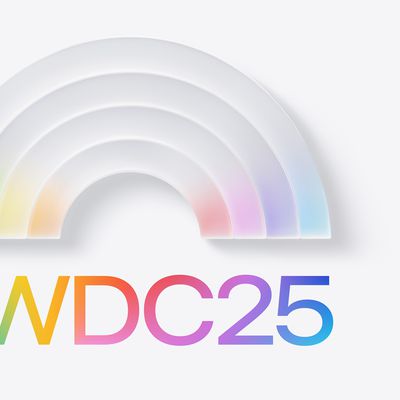Apple Bans Employees From Using ChatGPT Amid Its Own AI Efforts
Apple has restricted employee use of ChatGPT and other external artificial intelligence utilities amid the development of its own similar technology, The Wall Street Journal reports.

According to a document seen by The Wall Street Journal and individuals who claim to be familiar with the matter, Apple is concerned that AI tools could leak the company's confidential data. In addition to ChatGPT, Apple has barred staff from using GitHub's Copilot, a tool that helps write code with autocompletion.
Many businesses, such as banks, financial services, and healthcare institutions, have avoided adopting ChatGPT out of fear that their employees could inadvertently give the chatbot sensitive proprietary information. Samsung banned employee use of generative AI utilities like ChatGPT after discovering that staff had uploaded sensitive source code to the platform. The company was said to be concerned that data transmitted to artificial intelligence platforms including Bing and Google Bard could end up being disclosed to other users. JPMorgan Chase and Verizon have similarly banned use of these AI tools.
OpenAI has already sold Morgan Stanley a private ChatGPT service that allows employees to ask questions and analyze content in thousands of the bank's market research documents. Microsoft is working on a version of ChatGPT targeted at business customers to address privacy concerns.
The move comes in the context of Apple apparently working on its own large language models and AI technologies, led by senior vice president of Machine Learning and AI Strategy John Giannandrea. Giannandrea previously worked for Google and now reports directly to Apple CEO Tim Cook. The Wall Street Journal did not provide more information about what Apple's AI efforts encompass at this time.
OpenAI's ChatGPT has been accessible on the web and via several third-party iOS apps for some time, but yesterday the company released the first official ChatGPT app for the iPhone and iPad.
Popular Stories
While the iPhone 17 Pro and iPhone 17 Pro Max are not expected to launch until September, there are already plenty of rumors about the devices.
Below, we recap key changes rumored for the iPhone 17 Pro models as of May 2025:
Aluminum frame: iPhone 17 Pro models are rumored to have an aluminum frame, whereas the iPhone 15 Pro and iPhone 16 Pro models have a titanium frame, and the iPhone X ...
With the design overhaul that's coming this year, Apple plans to rename all of its operating systems, reports Bloomberg. Going forward, iOS, iPadOS, macOS, tvOS, watchOS, and visionOS will be identified by year, rather than by version number. We're not going to be getting iOS 19, we're getting iOS 26.
iOS 26 will be accompanied by iPadOS 26, macOS 26, tvOS 26, watchOS 26, and visionOS 26...
Apple is reportedly preparing to implement significant iPhone hardware redesigns each year for the next three generations.
According leaks from the Chinese supply chain disclosed by Weibo user "Digital Chat Station," Apple plans to carry out a series of phased industrial design changes affecting different parts of the iPhone across three consecutive years: 2025, 2026, and 2027. The changes...
The popular messaging app WhatsApp has teased a long-awaited iPad app, which would be offered alongside its existing iPhone and Mac apps.
The official WhatsApp account on X today reacted with an eyes emoji to a post saying that WhatsApp should release an iPad app. This could be a hint that Meta is gearing up to release WhatsApp for iPad, which has already been available for beta testing via...
WWDC 2025 is just two weeks away as of today, with Apple's opening keynote scheduled for Monday, June 9 at 10 a.m. Pacific Time.
During the keynote, Apple is expected to announce iOS 19, iPadOS 19, macOS 16, watchOS 12, tvOS 19, visionOS 3, and other software updates, along with new Apple Intelligence features. In some years, there are also hardware announcements at WWDC, but there are no...
Apple had plans to offer a Starlink-like satellite home internet service in collaboration with Boeing, The Information reports.
Starting in 2015, Apple held discussions with Boeing about "Project Eagle," a plan to launch a service to provide wireless internet services to iPhones and homes. The companies would have launched thousands of satellites into orbit around the Earth to beam internet...
The next major version of macOS, now dubbed "macOS 26," is rumored to drop support for several older Intel-based Mac models currently compatible with macOS Sequoia.
According to individuals familiar with the matter cited by AppleInsider, the following Macs will not be supported by the next version of macOS:
MacBook Pro (2018)
iMac (2019)
iMac Pro (2017)
Mac mini (2018)
MacB...




















